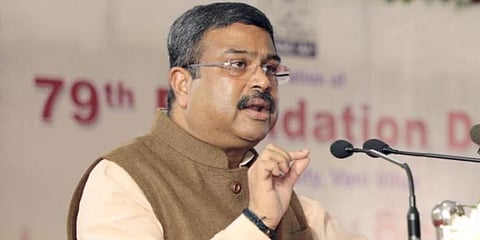

NEW DELHI: The government will discuss with political party leaders the issue of whether the privilege of MPs recommending the admission of 10 students to central schools in an academic year should end.
The move came after the matter was discussed in the Lok Sabha on Monday and Speaker Om Birla directed Union Education Minister Dharmendra Pradhan to hold a meeting with the leaders of political parties in the House.
"Let the minister hold a meeting with the leaders of political parties in the House to decide whether the MPs quota in central schools should be ended. Why should we have this discriminatory quota. A decision will be taken after discussions with the leaders of the parties," Birla said.
The issue was first raised by Congress MP Manish Tewari who said the 10 seats quota for the MPs is inadequate as they receive a lot of requests for recommendations for central schools seats.
Tewari said the quota should either end or be enhanced.
If the House is unanimous in ending the MPs quota, the government can work in that direction, Pradhan said.
"We are people's representatives. We are not representatives of a few," the minister said.
He said the quota was increased from the initial two to five and now 10 seats (per academic year).
However, a number of MPs opposed the move, saying MPs often receive lots of requests for the recommendations of central school seats and the 10-seat quota is inadequate and should be enhanced.
"It would be very difficult to do away with it," Trinamool Congress member Mahua Moitra said.
Pradhan said central schools and Navodaya Vidalayas were set up to cater to the needs of wards of all India services officers who are transferred to different parts of the country at regular intervals and in areas where central institutions are located.
But there are issues of local help as state governments have to come forward by offering land to set up central schools, he said.
The minister also said the central government approves the establishment of central schools in batches every two-three years and it wrong to say that it has not opened schools for a long time.
He said at least one central school is located in almost all districts in the country.